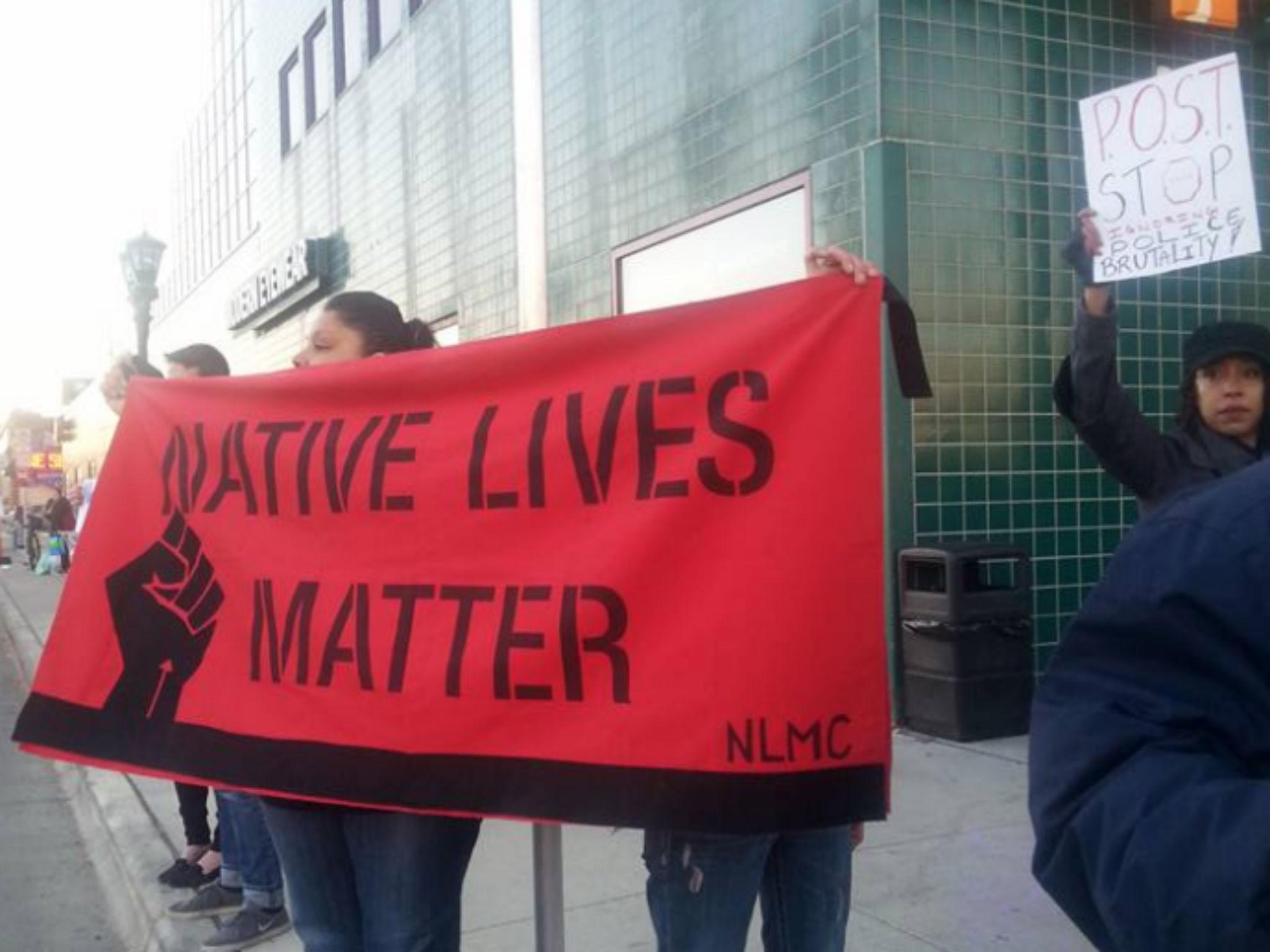Native Americans most likely ethnic group to be killed by police
Similar to African Americans, Native Americans experience discrimination and are often treated as second class citizens. Their deaths in the hands of police often go unreported in US media

Daniel Covarrubias, Christina Tahhahwah, Loreal Tsingine, Rexdale Henry.
These names, along with many others, are likely to be unfamiliar to most people in the US, but they are all Native Americans who were killed by law enforcement.
As reported by In These Times, data from the Centers for Disease Control and Prevention on 47 states between 1999 and 2011 found that Native Americans were even more likely than African Americans to be killed in the hands of law enforcement.
CDC data from 1999 to 2014 found that the group was more than three times more likely to be killed than white Americans.
Media coverage in the US is rare. There were 29 Native Americans killed between 1 May 2014 and 31 October 2015, yet only one death received significant coverage within the circle of the top 10 US newspapers. That case was Paul Castaway, a Rosebud Sioux man from Denver who was shot dead after he threatened suicide. Another man was incorrectly defined as Latino.
27 of those deaths received no coverage.
Native Americans, similar to African Americans, are more likely to receive discrimination and be treated as second class citizens. They are also more likely to be harassed or refused service in restaurants, wrongly fined and forced to work to pay of the “debt”. There is also evidence of police refusing to investigate murders, echoing civil rights struggles of the deep south decades ago.
Experts have also highlighted a lack of mental health services for Native Americans. A quarter of all people killed by police in the first three months of 2016 suffered from mental health problems or had threatened suicide, which made up about half of the Native American deaths.
Native Lives Matter, inspired by the Black Lives Matter movement, started in late 2014 and aims to put the spotlight on oppression and injustice faced by Native Americans, and has spread its message on Facebook and twitter.

In Tacoma, Washington, residents were horrified to learn of the death of Native American woman, 32-year-old Jacqueline Salyers of the Puyallup Tribe, on 28 January.
Salyers, who was pregnant, was sitting behind the wheel of a parked car while her boyfriend - wanted criminal Kenneth Wright - was in the passenger seat. She was shot in the head by police, and Wright clambered over her body, armed with a rifle, and escaped.
The shooting was ruled as “justified” as police claimed that Salyers had tried to run them over, but her family disputed the account. There was no video footage to verify the police claims.
Residents of the town now meet to support each other, pursue justice for Salyers, and to share their experiences of police brutality.
“Everyone is welcome [at the meeting],” said Silvia Sabon, a tribal woman whose Latino family friend Oscar Perez-Giron was killed by police over a bus ticket. “It doesn’t matter what color you are. We are all going through the same thing.”
James Rideout, a member of the group Justice For Jackie, told Democracy Now!, “Jacqueline Salyers was a very, very loving, caring, considerate person that didn’t deserve to die.”
Join our commenting forum
Join thought-provoking conversations, follow other Independent readers and see their replies
Comments
Bookmark popover
Removed from bookmarks